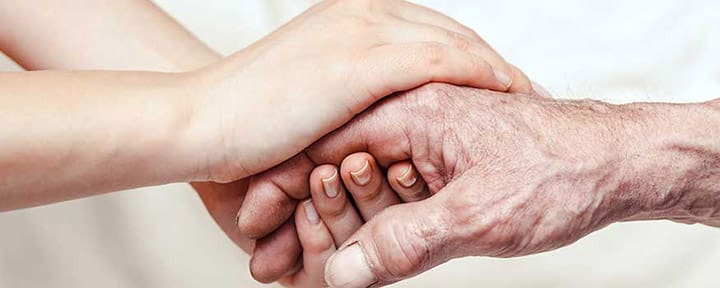Should nurses have a role in this end-of-life choice?
 A COUPLE OF YEARS AGO, a close friend of mine died. She was in her 80s and had a serious but not imminently terminal problem—and she placed a high value on independence. She had just broken her femur (after several other bone breaks) and had multiple medical problems, making independence highly unlikely.
A COUPLE OF YEARS AGO, a close friend of mine died. She was in her 80s and had a serious but not imminently terminal problem—and she placed a high value on independence. She had just broken her femur (after several other bone breaks) and had multiple medical problems, making independence highly unlikely.
She decided to take matters into her own hands. She stopped her medications, refused to eat, and drank only a little now and then to ease the discomfort of thirst. The only assistance she had was the nursing care she needed to keep her comfortable. She died 4 days later after talking to all the people who were important to her. My opinion is that refusing to take her medications did the most toward hastening her death.
She didn’t ask anyone’s permission and she didn’t involve anyone else in her decision-making, avoiding many of the ethical and legal concerns associated with physician–assisted dying or other palliative measures of last resort. She said, “God did not intend for me to live like this…and there is no religion that forbids it.”
Indeed, if you involve no one else, no one’s idea of morality is involved. I will add that she died very peacefully. She wasn’t sad, though some of us around her were because we knew we would miss her, but we all knew that the decision was hers alone to make. However, as soon as you involve others in your decisionmaking, and particularly if you involve the law, things get decidedly more complex.
And, of course, there is always the chance of abuse when you involve the law. For example, my column in June was about a supervising nurse at a large hospice provider who participated in a fraud scheme that included overdosing patients for profit. And in New Jersey, terminally ill adults will now be able to ask for medical help to end their lives, but Republican state senator Robert Singer, an outspoken critic of the bill, noted that “The bill has a lot of loopholes…. We are so concerned about opioids, and not trusting doctors with opioids. But now we are willing to trust them with this.”
Other jurisdictions that allow physician-assisted suicide (also referred to as medical aid in dying) are California, Colorado, Hawaii, Maine, Oregon, Vermont, Washington, and the District of Columbia. In addition, at least 19 other states are considering physician-assisted suicide bills. So, assisted suicide is a rapidly growing trend. And nurses had better know where we stand on this issue (and why we stand there), how to protect patients from undue influence, and how to protect ourselves from unwarranted accusations. We also need to know how to protect ourselves, our patients, and others from the greedy influence of illegal maneuvering to save money, time, and even effort.
In June 2019, the American Nurses Association released a position statement, “The nurse’s role when a patient requests medical aid in dying,” that provides guidance on this important issue. It’s a worthwhile read.
Some years ago, when writing on this topic, I suggested that nurses and physicians and other health professionals shouldn’t be involved in killing, even voluntary suicide (including physician-assisted suicide). It’s not our role, and from what I’ve seen in my 50+ years in nursing, we’re more likely to neglect dying patients than to give them extra care. What I’m proposing is that we invent a new professional who’s carefully prepared and supervised, whose primary role is to assist patients and their families as they consider and perhaps receive truly terminal care. What do you think?

Leah Curtin, RN, ScD(h), FAAN Executive Editor, Professional Outreach
American Nurse Today
Select references
American Nurses Association. The Nurse’s Role When a Patient Requests Medical Aid in Dying. 2019. nursingworld.org/~49e869/globalassets/practiceandpolicy/nursing-excellence/ana-position-statements/social-causes-and-health-care/the-nurses-role-when-a-patient-requestsmedical-aid-in-dying-web-format.pdf
Romine T. New Jersey will allow terminally ill patients to end their lives starting today. CNN. August 1, 2019. amp.cnn.com/cnn/2019/08/01/health/nj-assisted-suicide-terminally-ill-law-trnd/index.html
Wilmont SS. End-of-life care in critical condition. Am J Public Health. 2015;105(1):58-61.



















10 Comments.
I read with interest Ms. Curtin’s recent editorial discussing the nurse’s role in caring for patients who request medical aid in dying (MAID). I appreciate and agree with her comment that, “as soon as you involve others in your decisionmaking, and particularly if you involve the law, things get decidedly more complex.”
It is precisely because the issue of end of life decisions is so complex that we have to be very careful and very clear in discussions. The example Ms. Curtin provided of her friend who chose to voluntarily stop medications and stop nutrition and hydration is poignant and provides a good example of choices available to persons who would not have the option of MAID because they are not terminally ill. It is perhaps less useful in that stopping medications, eating and drinking does not typically allow death to occur quite as quickly as in the case she describes and can be quite uncomfortable for some.
The concern about potential abuses is frequently mentioned in discussions of MAID. And, while abuse can be a concern, there have been no instances of abuse in the 40+ collective years in the jurisdictions permitting MAID. All 10 jurisdictions that have approved MAID have included quite stringent criteria that assure appropriate use.
I do not agree with the suggestion for a “new profession” to assist and support patients and families as they struggle with end of life decisions. Advocacy for patient rights and provision of education and support, even when a patient makes a decision that is contrary to our own values and beliefs, has always been a hallmark of our profession. Rather than adding yet another role to the fragmented health care system, let’s give nurses the preparation they need to have factual, caring discussions with their patients.
In my 30 years of practice as the Director of a Clinical Ethics service in an academic medical center, I have seen the good, the bad, and the ugly when it comes to death. What has made the difference in most cases is adherence to patient wishes and the presence of skilled, compassionate nurses who advocated for what the patient wanted. Regardless of one’s personal view of MAID, surely we want our professionals to be prepared for this critical role at one of life’s most vulnerable stages.
I join Ms. Curtin in urging nurses to read the recent ANA position statement, The Nurse’s Role When a Patient Requests Medical Aid in Dying, and become knowledgeable about the facts rather than the myths. The statement’s recommendation to understand one’s own beliefs and be objective when discussing end-of-life care and decisions is particularly important as more Americans gain access to this option.
As an oncology nurse practitioner, I have spent more than 30 years, caring for people with cancer and that includes many years in hospice. The pain and suffering that often accompanies an advanced cancer diagnosis, is frequently unavoidable. I have been at the bedside of enough dying patients, including members of my own family, to know that despite the best hospice care, not all pain and symptoms can be controlled, nor will every patient have a peaceful end to their life.
For me, this issue could not be more personal. I have stage IV lung cancer. At some point in my future, this disease will consume every aspect of my life. How much suffering will I have to endure? It’s not only about the pain and respiratory distress that I will most likely face at the end of my life; it’s about the loss of independence, the loss of cognitive function, and the loss of autonomy. I want to have access to MAID. I want to die in my own home, on my own terms, surrounded by my loved ones.
The revised position statement from the ANA on MAID is long overdue. Seventy percent of the American public supports MAID legislation. My interpretation of the revised position statement is one of engaged neutrality as the ANA does not support or oppose current laws. I hope in time nurses who support MAID will be able to share their values and beliefs as freely as they who oppose it. For too long, many have been reluctant to voice their support because of intimidation by leadership. Let this be the beginning of ongoing dialogue and research as we come together to respect and understand not only patient’s choices but each other.
With all due respect to Dr. Curtin, I read the ANA position statement, “The Nurses Role When A Patient Requests Medical Aid in Dying,” to be one of engaged neutrality on the subject. I was saddened to see the ANA publish an editorial using inflammatory language to describe medical aid in dying, as “physician assisted suicide” and referring to said practice as a “rapidly growing trend.” Medical aid in dying is not a “trend.” The authorized safe practice of medical aid in dying has been available to patients in authorized jurisdictions in the United States as early as 1994. Patient autonomy is a priority in medical aid in dying. The patient makes the request for the medication, the patient must administer the medication, and the patient is free to change his or her mind at any time.
As nurses, I look to the ANA to represent the best interests of our profession. I was relieved when the ANA passed “The Nurses Role When A Patient Requests Medical Aid in Dying,” because I work with patients who are struggling with end-of-life care issues. This position statement allows me to have an open conversation with patients and not feel as though I am abandoning them should they decide on pursuing medical aid in dying. I think this new position statement has so much potential. I wish that everyone could just stop wasting their energy on fighting over the issue long enough to help terminally ill patients who want this end-of-life option.
This is a topic long discussed and greatly disagreed by many. I find it interesting that medical professionals have no problem keeping a person on life support or taking extreme measures to save a life knowing that the person’s quality of life will be drastically changed. If a person is capacity of making a sound decision, then who are we to say no ? I’m not saying to start handing out the pills and IVs but keep the hospice programs in place and support those nurses who choose this path in their career. Perhaps suicide isn’t the word to be used for this situation.
My position is simple. Do no harm; no malfiesence. We have Hospice nurseswho are amazing nurses providing end of life care quite eloquently. The bible says we are not to commit suicide and I agree. Life is so precious. In the past things such as slavery were legal but that didnt make it ethically right. Legalizing suicide may be legal in certain states but that also doesn’t make it ethically right. Nurses are the most trusted profession. If we go down that slippery slope, we will lose our trusted standing. Moreover, individually, we will lose our dignity.
The example above is one of allowing nature to take its course through not taking medication, not eating and minimal drinking. This is very different from assisted suicide. This person made conscious choices as to how she wanted to proceed. Patient rights were acknowledged.
The idea of a separate profession “whose primary role is to assist patients and their families as they consider and perhaps receive truly terminal care,” is interesting and worth exploring. It sounds like nurses, physicians, ethicists, lawyers and others should be part of those doing the explorations.
Thank you for this article. As a nurse (NP), I will not participate in the suicide of anyone. I had a patient who refused to eat or drink and was mentally challenged. He grew up in an institution in MA where he was happy and had lots of friends. A decision was made to place him in a home environment with 3 other people in need of supervision. The others went to work programs and he stayed alone at the house. The doctor in charge want to allow him to die by starvation as he thought it was his will. I intervened and stated that I thought he was depressed due to the change in his living situation and stated that I wanted him to go back to the institution to see if there was a change. He would only eat and drink if I was at his bedside with him, Within weeks of returning to the institution, he was a new person-eating, drinking, singing and laughing.
On many occasions nurses are invited into the most private, almost intimate of times. Times that include the passage of life into the next. My last job was in a urgent care, walk-in clinic. An elderly man asked me, “Do you know where I can go to get the pills?” He was stooped from arthritis, he was in chronic pain, he did not sleep well, he was a widower who had also seen the passing of 2 of his 4 children, he was in his 90’s. He had trouble with elimination, balance and loneliness, he missed those of his who were gone, he stated he had no joy in life. He was bright minded. I asked the NP to come to the room to further evaluate, she no more knew what to do or say than the man in the moon. After she left and took her discomfort with her, I told him to please see his doctor to discuss this as well as other options. I sent an email to his doc to explain as well as I could. We all must face this, and come to grips with mortality and our choices to be the professionals we say and hope we are. I touched his hands as he left, looked into his eyes, told him I understood as best as I could. I think if, God providing, I make it to that age, I might feel the same way.
I am completely confused by the last part of the article. When we have wonderful Hospice nurses who are lovingly and with care going forth each and every day, and sometimes night, to do what you are proposing to do, why do we need a new position? I also am totally opposed to the notion of aided medical death in any way, shape or form when I took my oath to care for my patients and do no harm. Hospice provides death with dignity and upholds the family unit at that time, whatever that may look like. If patients with a terminal disease are scared of death and dying then I propose that we in the medical community are not doing our job with education and care management to ease fears, pain and spiritual distress.
I traveled to a hospital that would place people on morphine and Ativan drips to speed up the dying process. I was absolutely mortified and will NEVER participate in killing someone willingly. I did not renew that contract and I will never go to that facility again.